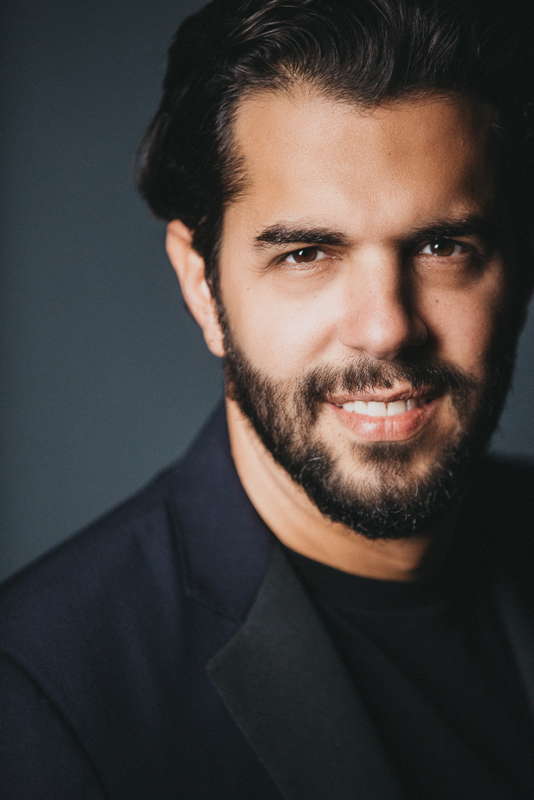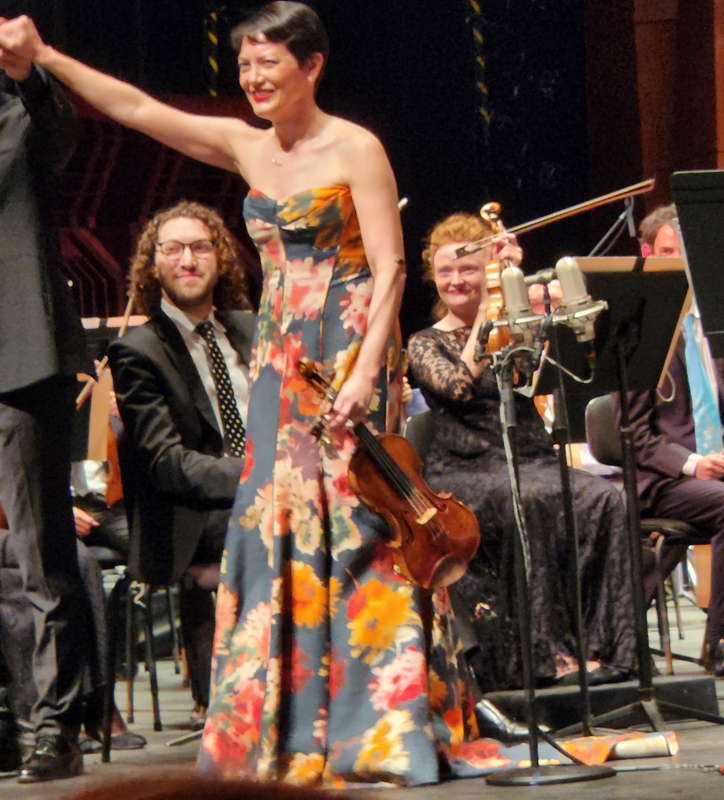 UPDATES: There's a new feature every day at Classical Music Daily. Read about the various ways we can keep in touch with you about what's happening here.
UPDATES: There's a new feature every day at Classical Music Daily. Read about the various ways we can keep in touch with you about what's happening here.
- Rameau
- Royston Nash
- James Redwood
- Jesús López Cobos
- Winona Zelenka
- Yradier
- West Kirby
- David Ositrakh
 VIDEO PODCAST: Slava Ukraini! - recorded on the day Europe woke up to the news that Vladimir Putin's Russian forces had invaded Ukraine. Also features Caitríona O'Leary and Eric Fraad discussing their new film Island of Saints, and pays tribute to Joseph Horovitz, Malcolm Troup and Maria Nockin.
VIDEO PODCAST: Slava Ukraini! - recorded on the day Europe woke up to the news that Vladimir Putin's Russian forces had invaded Ukraine. Also features Caitríona O'Leary and Eric Fraad discussing their new film Island of Saints, and pays tribute to Joseph Horovitz, Malcolm Troup and Maria Nockin.
Total Immersion
RON BIERMAN listens to Anne Akiko Meyers, Domingo Hindoyan and the San Diego Symphony
Albert Roussel's Suite No 2 from the Bacchus et Ariane ballet is an unusual concert opener. Instead of a typically spirited curtain-raiser, it offers Debussy-like textures and emotions from wistful to chaotic. It's a chance for many soloists and every section to impress. And impress they did, beginning with short moody solos from clarinet, flute and bassoon, soon joined by concertmaster Jeff Thayer's warm Stradivarius.
The California Center for the Performing Arts has a smaller stage and a more intimate feel than that of most symphony halls. That worked in favor of Thayer and other soloists. All of them performed well even at the most frenzied of Ariane's orgiastic moments with Bacchus god of wine (and though less media-worthy, also agriculture). Guided ably by a clearly committed Domingo Hindoyan, instrument sections too made the most of Roussel's rapidly varying moods and changing tempos. Hindoyan is yet another fine conductor with musical origins in Venezuela's El Systema.

Domingo Hindoyan. Photo © 2022 Grzesiek Mart
Mexican composer Arturo Márquez's Fandango for Violin and Orchestra was the evening's main attraction. It was written for the violinist Anne Akiko Meyers who performed it on a Guarneri purchased for sixteen million US dollars. On lifetime loan to her, she's said: 'It is totally like you're walking around with a Matisse or a Picasso or a Monet on your back'.
When Meyers made her gentle entry in the first movement, the ravishing sound made a strong case that the instrument was a bargain. Even when cadenzas entered the higher registers, the sound remained wonderfully rich, never displaying the colorless shrill sound of lesser instruments.
The violinist appeared in a flamboyant floor-length dress. Its pattern of bright, colorful flowers delightfully echoed the concerto's orchestral colors.

Anne Akiko Meyers onstage at the California Center for the Arts. Photo © 2023 Ron Bierman
Meyer's total immersion was evident in facial expressions and swaying movements as the music danced, charmed and thrilled. She ended one interval of virtuosic runs, trills and multiple stops with a violent stroke down, one a Flamenco guitarist would have been proud of. Her 'take that' expression provoked a few appreciative laughs, causing her to turn and exchange pleased smiles with Concertmaster Thayer. She'd earlier exchanged similarly delighted smiles with the conductor, as they acknowledged a movement's perfection.
When I heard Meyers with Gustavo Dudamel in the concerto's world premiere at the Hollywood Bowl last year, I came away with the impression that the three-movement work has a chance to enter the standard repertoire. My second hearing of its tonal melodies, colorful orchestration and infectious Latin rhythms strengthened that impression.
Igor Stravinsky's Petrushka was probably the only familiar work for many in the audience. Like the preceding pieces, it was inspired by traditional ethnic melodies and dances. Russia prevails in the ballet's description of the adventures of three puppets who come to life to form a tragic love triangle, but Stravinsky also quoted popular tunes from other countries.
All the notes were there in Hindoyan's interpretation, but more could have been made of Stravinsky's perky sarcasm as he describes the actions of puppet rivals come to life. Just missed too was the full impact of pulsing riotous excitement as an uninhibited crowd cavorts drunkenly at St Petersburg's Shrovetide Fair.
Sections and soloists again proved themselves worthy of greater national recognition as they navigated Stravinsky's difficult score, but the evening's closer never matched the electricity and energy of the concert's first half.
Copyright © 14 January 2023
Ron Bierman,
San Diego, USA



